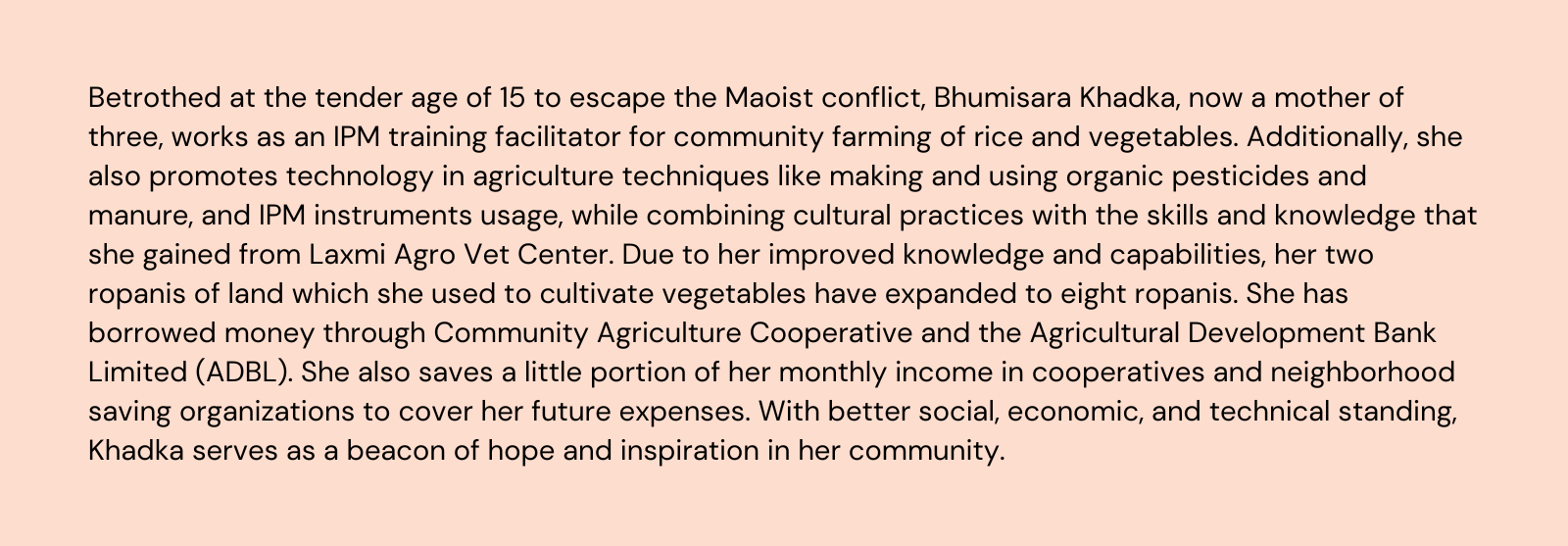Given the diverse scope of Nepal’s economic system, the private sector plays a critical role in ensuring the agriculture sector’s availability and accessibility. It can support the agriculture industry by providing funding, technology, supply chain management, marketing and branding, and training and education. By working together, the private sector and the agriculture industry can help to improve agricultural practices, increase productivity, and create more sustainable and profitable farming systems. As a result, the agriculture industry has substantially benefited and improved in various ways as a result of its partnerships with various private-sector firms.
The private sector and the agriculture industry are interconnected in various ways. The private sector supports the agriculture industry through input supply, processing and packaging, marketing and distribution, financing, research and development, and employment. Whereas the agriculture industry provides opportunities for private companies to develop and grow their businesses, while also contributing to sustainable and profitable farming systems. A deeper understanding of this relationship’s dynamics can only serve to strengthen it and enable sectoral growth.
Private sector groups have been actively involved in the agriculture industry in several ways. One such way is by creating opportunities and prospects to increase farming productivity. Laxmi Argo Vet Center, a private sector-led shop for various agro-products in Surkhet, has been providing consultations and advice for several farmers in Thagleni village located in Gurvakot Municipality, Surkhet. By establishing a local farmer’s group called “Hariyali Taja Tarkari Utpadan Krishak Samuha” (Green Fresh Vegetables Producing Farmer’s Group) in 2018, the center has been providing training and workshops on smallscale farming and livelihood improvement such as Integrated Pest Management (IPM).
A success story of the Integrated Pest Management (IPM) training is that of 32-year-old Bhumisara Khadka, explained in the box story below.
Devkota Mandi, a vegetable trader from Birendranagar, Surkhet, enters the picture after Laxmi Agro Vet, Agriculture Development Bank, and Community Agricultural Cooperative. This trader, among others, travels to Thagleni to collect fresh vegetables for the market.
This is how the beautiful interplay between different private sector entities like banks, cooperatives, Agro vets, vegetable traders, and farmers takes place, finally producing a reliable and powerful supply chain. Farmers are aware of where to obtain financing, from whom to purchase agricultural inputs, and to whom to sell. Likewise, financial institutions are aware of the locations and purposes for which they have granted financing. Also, traders are aware of where to get vegetables from and what to expect in terms of their quality. This relationship between multiple entities gives a lot to ponder for other stakeholders, like municipal, provincial, and federal governments, their agencies, and various development partners, as they try to understand the intricacies and apply them to other regions of the country. Alternatively, perhaps include knowledge derived from this kind of relationship in the formulation of policy. Or, if necessary, make an effort to facilitate this interaction.
This article was originally published in ‘Nefport 52: Agriculture Special – Perspectives from the Ground’ in March 2023.
Neha Thapa has over 8 years of professional experience, having worked in development projects and the private sector. Since 2018, she has been affiliated with CEAPRED, focusing on private sector partnerships, market system development, integrating gender into agriculture, collaborating closely with government and other partners and resource mobilization.






